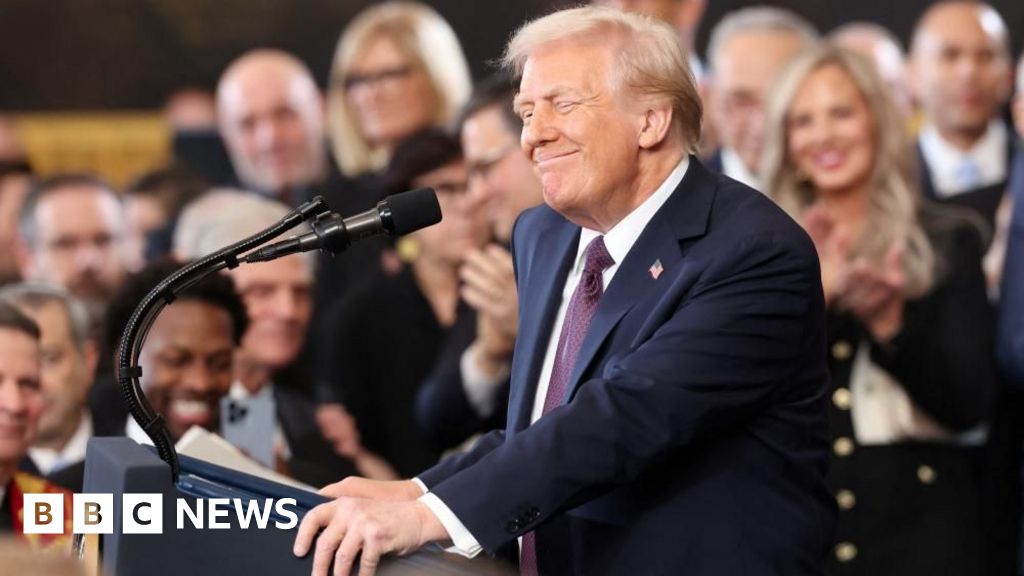
Donald Trump returned to power riding a wave of voter dissatisfaction with the status quo, promising a new “golden age” for the United States in his inaugural address.
The speech was a mix of promises and contradictions, highlighting some of the opportunities and challenges the new president will face in his second term.
He’s particularly focused on immigration and the economy – issues that polls showed were top of mind for American voters last year. He also pledged to end government-driven diversity programs, noting that official U.S. policy recognizes only two genders, male and female.
Those last words sparked a loud response at the Capitol, with cheers erupting from supporters gathered at a nearby stadium. It suggests that cultural issues – which provided him with the sharpest contrast with Democrats in last year’s election – will continue to be one of the most powerful ways for incoming President Trump to connect with voters.
However, before outlining what this new era will bring, Trump painted a dark picture of the current American political climate.
As his predecessor Joe Biden and other Democrats sat stone-faced, Trump said the government faced a “crisis of confidence.” He denounced the “vicious, violent and unfair weaponization” of the U.S. Department of Justice, which investigated and sought to prosecute him over his objections to the 2020 election results.
He claimed the power to reverse a “horrible betrayal” and lashed out at “radical and corrupt institutions” that he said extract power and wealth from American citizens.
This kind of populist, anti-elite rhetoric has been a staple of Trump’s speeches for a decade. However, unlike 2015, when Trump first ascended to the pinnacle of American political power, Trump represents the current emerging establishment as much as anyone. Sitting behind him on the podium were some of the world’s richest and most influential business leaders.
On Inauguration Day, Trump had the spotlight and the initiative. His aides have promised hundreds of executive actions on a range of topics, including immigration, energy, trade, education and hot-button cultural issues.
In his inaugural address, he detailed some of this. He promised to declare national energy and immigration emergencies, allowing him to deploy U.S. troops at the border, drastically limit the rights of asylum seekers and reopen vast swaths of federal land to energy extraction. He reiterated his commitment to rename the Gulf of Mexico the “Gulf of America” and take back the Panama Canal.
He made baseless claims that China was operating the critical waterway and said U.S. ships, including Navy ships, were paying exorbitant transit fees — perhaps hinting at the true goals of future negotiations with the Panamanian government.
“America will once again consider itself a growing nation,” he said, pledging to increase America’s wealth and expand “our territory.”
This last point may raise eyebrows among U.S. allies, who are already concerned about Trump’s interest in acquiring Greenland and have scoffed at making Canada the 51st U.S. state.
On the campaign trail and in this speech, Trump made a series of big promises. Now that he is president, he will be challenged to achieve this goal and demonstrate what the “golden age” he heralded actually means.








